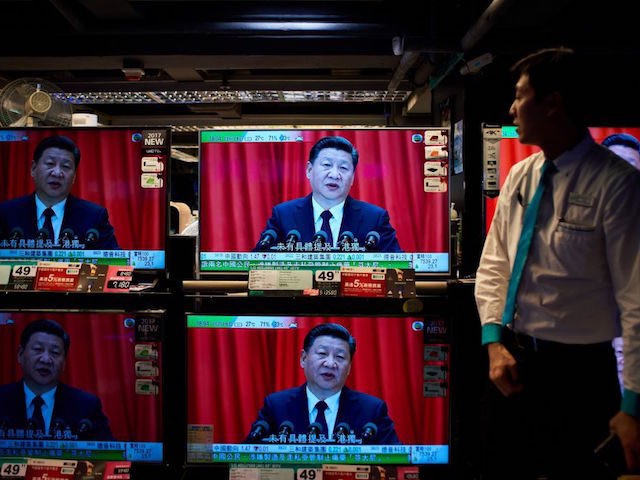Human rights website Bitter Winter reported on Wednesday that lawyers are preparing to bring a variety of suits against the government of China for its irresponsible handling of the Wuhan coronavirus pandemic.
The trick, of course, would be getting the Chinese Communist Party (CCP) to pay up, and it could never come close to compensating the world for the lost money and lives from the pandemic, even if it wanted to.
Still, there is legal groundwork to support the suits, the outlet noted, and they could help to push back against the massive CCP propaganda effort to portray itself in a heroic light:
What would be the legal basis for the lawsuits? It is, indeed, a basis the world created with China in mind. In 2002, SARS spread from China’s Guangdong province. By 2003, it had spread to 28 countries, with a total death toll of 774. The figure may now look small, compared to the victims of COVID-19, but the world realized that many casualties could have been avoided, had China not tried to shroud in secrecy the epidemic for several weeks after it occurred. SARS led to the new International Health Regulations of the World Health Organization (WHO), adopted in 2005 and legally binding on all WHO member states, including China. The Regulations refer inter alia to SARS as well as to similar diseases “caused by a new subtype” (such is the virus responsible for COVID-19), and establish an obligation by member states to share relevant information within the WHO “within 24 hours.”
No matter how much China uses its political leverage to control statements by WHO leaders, it is crystal clear that China has violated its obligation to report under the 2005 Regulations. The story of Doctor Li Wenliang (1986-2020), to whose family the CCP apologized when he had already died from the disease, shows clearly that China did not want information on the virus to go public internationally, and those who dared to speak about it were threatened or put in jail. The CCP withheld crucial information for weeks, both at home and internationally, and there is a general consensus that, had China released them on time, thousands of lives would have been saved.
The CCP already has a dismal history of ignoring international court judgments that go against it, notably including the rulings against its territorial claims in the South China Sea. Bitter Winter suggested painful sanctions could be leveled against Chinese dictator Xi Jinping and other top officials, using legal instruments such as the Global Magnitsky Act, which gives the U.S. government tools to punish foreign officials who commit human rights violations.
“There should be many ways to hold China, the CCP, Mr. Xi Jinping and all those who cooperated in the cover-up liable for the enormous amount of deaths, tragedy, and economic damages they caused. CCP beware: the lawyers are coming, and this may be good news for the world,” the article concluded.
China is no stranger to human rights violations. Long before it began silencing the doctors who tried to warn the world about the Wuhan virus, it was jailing journalists, disappearing dissidents, herding troublesome populations into concentration camps, and trafficking in forced labor.
In January, Human Rights Watch (HRW) called the CCP an “existential threat” to human rights around the world because its agenda includes relentlessly attacking the human right system. When HRW executive director Kenneth Roth flew to Hong Kong to deliver this warning in a speech rolling out the 2020 edition of his organization’s human rights report, the Chinese Communists blocked him from entering the city, the first time he has ever been refused entry. Roth said the CCP justified its outrageous action by accusing HRW of “inciting the Hong Kong pro-democracy protests.”
China seeks to undermine the entire global system for protecting human rights because Beijing and its many noxious client states regard human rights as a racket used by Western powers to keep them down. Roth accused U.N. Secretary-General Antonio Guterres of bowing to Chinese pressure by refusing to demand the release of the Uyghur Muslims held in the concentration camps of Xinjiang province.
Forcing Communist China into the dock to answer for its conduct during the Wuhan epidemic – or, more likely, forcing China to disregard its summons to court – would go a long way toward thwarting the CCP’s campaign to be seen as a responsible member of the world community. There are many world governments and international organizations that would be reluctant to let Beijing make an utter mockery of the entire human rights system, thus making other countries more likely to ignore the system and its component institutions as well.

COMMENTS
Please let us know if you're having issues with commenting.